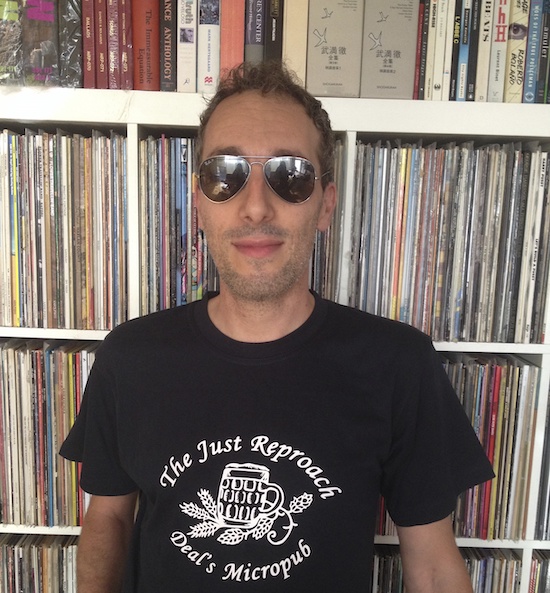Australian musician Oren Ambarchi is a self-described obsessive. More than once, he described putting together his Baker’s Dozen as “like pulling teeth”. The first version was a cryptic list of over 25 records assembled into 13 positions, which had a hidden logic to the connections. A second version required narrowing the focus to a small but extremely influential set of records pertaining mostly to his teenage years. He still struggled not to include more than one album per listing – formative influences like Miles Davis, Ornette Coleman and the entire ECM catalogue wouldn’t be pulled apart. What all this points to is that Ambarchi has always been into bodies of work – the way he talks about music is about understanding catalogues and artist’s work, rather than isolating and identifying an individual album as the be all and end all of someone’s output.
This is how he approaches his own work. He released his first LP of solo guitar in 1998. There were two reasons, he explains: "One, I was listening to an Alan Licht record, and I thought, I could do that. So I played guitar onto a cassette in mono, and then flipped it over and did another piece. And at the exact same time a friend of mine, Lucas Abela [Justice Yeldham] had a connection to a pressing plant in the US. And he said to me, hey, if you want to release a record, I can get it you really cheaply, but I need something now. So I kind of just gave him this cassette on a whim. And about four months later, I had 150 LPs in my house that I didn’t know what to do with. And that was the beginning. It was really spontaneous, and probably a little bit foolish, because it wasn’t very good. But I guess it got me going."
Since then he has released more than 20 solo records, and double that amount as a part of various assemblages. Sometimes called a guitarist, sometimes a percussionist, he composes, plays and collaborates constantly, and is so active and involved in various projects, assemblages and groups he can be difficult to place, except for as a busy node in a dense network of musicians from various genres. His more persistent groups include a trio with Keiji Hainio and Jim O’Rourke, collaborations with Canadian musician crys cole (also his partner) and recently, Alvin Curran.
Ambarchi’s new record, Simian Angel, is two long drifting tracks, whose grammatical structures come from Brazilian percussionist Cyro Baptista. He plays the single string berimbau and hand drums, where Ambarchi is listed as playing ‘guitars and whatnot’. Lots of the music in his Baker’s Dozen could be roughly described as jazz fusion, and there are moments in this record that he says reference this early love: “towards the end of side two there’s a few things that are a little kind of fusiony, a little bit cheesy, a little bit outrageous," he says. "Maybe some of that’s coming from this stuff that I used to listen to."
I point out that this is probably one of the least ‘cool’ genres of music, and much of it has not aged well. He freely admits that one Pat Metheny track in particular sounds like a TV sitcom theme, but that also, there are really wild and adventurous things happening in these records. “I was coming from rock,” Ambarchi says, “and the fusion thing definitely had a rock connection – a lot of them are electric instruments.”
He is a voracious and unpretentious listener – the day we talk, he’s been listening to Indonesian composer Dewa Alit, Japanese singer Akiko Yano, composer Daniel Lentz, and Rickie Lee Jones, and this list could easily have honed in on other scenes he’s done a deep dive on, such as Japanese noise, or Japanese 1970s pop records. Having turned 50 this year, he’s recently been going back to these jazz records from his formative years: “It’s what I heard when I was young. It’s just there in my DNA," he explains. "I talk to Jim O’Rourke about it, because we both grew up listening to a lot of these records. So we’ll talk for hours about this stuff, and people sitting in the bar are like: ‘You guys are insane. What are you getting excited about, that is cheesy fusion shit!’"
Oren Ambarchi’s Simian Angel is out now on Editions Mego. He plays this year’s Semibreve Festival in October, for more information and tickets go here. Click the image of Oren to begin reading his selections


